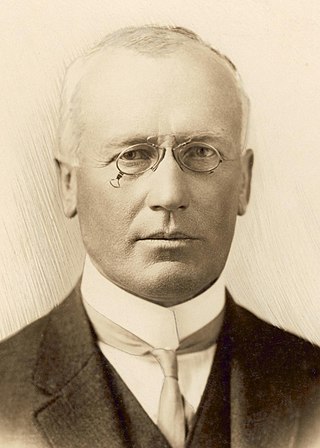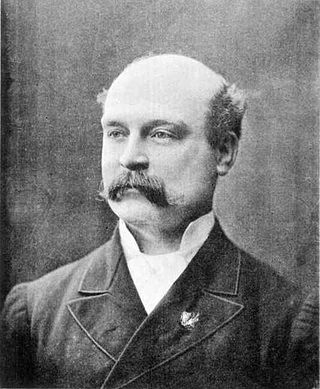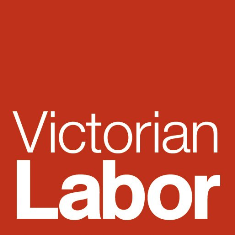Related Research Articles

Sir William Hill Irvine was an Australian politician and judge. He served as Premier of Victoria (1902–1904), Attorney-General of Australia (1913–1914), and Chief Justice of Victoria (1918–1935).

Sir John Quick was an Australian lawyer, politician and judge. He played a prominent role in the movement for Federation and the drafting of the Australian constitution, later writing several works on Australian constitutional law. He began his political career in the Victorian Legislative Assembly (1880–1889) and later won election to the House of Representatives at the first federal election in 1901. He served as Postmaster-General in the third Deakin Government (1909–1910). He lost his seat in 1913 and ended his public service as deputy president of the Commonwealth Court of Conciliation and Arbitration (1922–1930).

William Arthur Trenwith was an Australian labour movement politician and pioneer trade union official who served as the 1st leader of the Victorian branch of the Australian Labor Party from 1892 to 1900. He also served as Senator for Victoria from 1904 to 1910.

Sir Charles Sladen,, Australian colonial politician, was the 6th Premier of Victoria.

William Alexander Watt was an Australian politician. He served two terms as Premier of Victoria before entering federal politics in 1914. He then served as a minister in the government of Billy Hughes from 1917 to 1920, including as acting prime minister during World War I, and finally as Speaker of the House of Representatives from 1923 to 1926.

Sir Simon Fraser was a Canadian-Australian businessman, pastoralist, and politician. He was a Senator for Victoria from 1901 to 1913, having previously been a member of the colonial Parliament of Victoria.
Ian Macfarlan was an Australian politician who served as the deputy leader of the Victorian Liberal Party in 1945. He was briefly commissioned as the 35th Premier of Victoria by the Governor and formed a government which brought about the end of the Dunstan ministry.

Sir Thomas Bent was an Australian politician and the 22nd premier of Victoria.

Sir Alexander James Peacock was an Australian politician who served as the 20th Premier of Victoria.

George Alexander Elmslie was an Australian politician who served as the 25th and shortest serving Premier of Victoria, and the first Labor Premier.

George Michael "Mick" Prendergast was an Australian politician who served as the 28th Premier of Victoria. He was born to Irish emigrant parents in Adelaide, but he grew up in Stawell, Victoria. He was apprenticed as a printer, and worked as a compositor in Ballarat, Sydney and Narrandera before settling in Melbourne in 1887. A member of the Typographical Association, he represented that union at the Melbourne Trades Hall, of which he was President in 1893.

Sir John Madden, was an Australian judge and politician who was the fourth and longest-serving Chief Justice of Victoria, in office from 1893 until his death. He was acting governor on a number of occasions.
The following lists events that happened during 1913 in Australia.

Sir Henry John Wrixon was an Australian barrister and politician.

John Andrew Arthur was an Australian lawyer and politician. He was a member of the Australian Labor Party (ALP) and was first elected to federal parliament at the 1913 federal election, after a successful career at the Victorian Bar. After the 1914 election, he was appointed Minister for External Affairs in the Fisher government. He died of kidney disease three months later, aged 39.

Agar Wynne was an Australian lawyer and politician. He began his career in the Victorian Legislative Council and served two terms as Solicitor-General of Victoria. In 1906, he transferred to the federal House of Representatives. He was Postmaster-General of Australia in the Cook Government from 1913 to 1914, but retired from federal politics at the 1914 election. He re-entered Victorian politics and briefly served as Attorney-General of Victoria (1917–1918).
Alfred Richard Outtrim was a long-serving Victorian politician who gained a reputation as a competent government minister and a promoter of women's suffrage and regional development.

The 1914 Victorian state election was held in the Australian state of Victoria on Thursday, 26 November 1914 to elect 49 of the 65 members of the state's Legislative Assembly.

The Victorian Labor Party, officially known as the Australian Labor Party and commonly referred to simply as Victorian Labor, is the Victorian state branch of the Australian Labor Party (ALP). The party forms the incumbent government in the state of Victoria and is led by Jacinta Allan, who has served concurrently as Premier of Victoria since 2023.

John William Billson was a British-born Australian politician. He was an Australian Labor Party member of the Victorian Legislative Assembly for Fitzroy from 1900 to 1924 and the deputy leader of the state Labor Party from 1913 to 1924.
References
- 1 2 3 "William Evans". Re-Member: a database of all Victorian MPs since 1851. Parliament of Victoria. Archived from the original on 23 April 2023. Retrieved 20 November 2012.
- ↑ Jones, Barry O. "Elmslie, George Alexander (1861–1918)". Australian Dictionary of Biography . Canberra: National Centre of Biography, Australian National University. ISBN 978-0-522-84459-7. ISSN 1833-7538. OCLC 70677943.